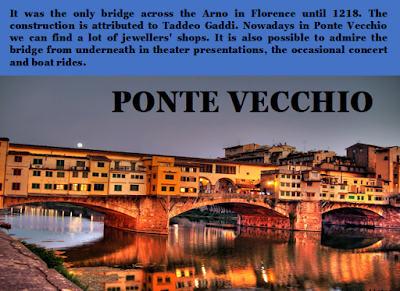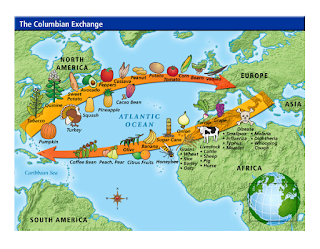Welcome back, everyone! Apologies for the delay in posting on here, but we're sure that it will be worth the wait. Here is an interesting and thought-provoking philosophy essay in English by Ana, a pupil in 1º Bachillerato. Enjoy!
Funes the Memorious
Before the accident, Funes describes his life as a life where he was blind to reality. As a dream. And he claims his “perception and memory are infallible” now.
Now, what does this mean? It could mean that now he sees things as what they are. That, when people only see the concept (“three cups and a table”), he sees what that concept is made of (apeiron= the beginning of all is infinite) ( Anaximander ).
Thus everything can be divided (specified) , but if it is joined instead (generalised) , there will be a point where joining won't be possible anymore and that point is where the “being” is found. This leads us to finding that Funes does not comprehend generalisation, for he “cannot quite understand why the term “dog” is used for so many individuals in so many diverse sizes and shapes. He didn't like that the dog from three fourteen pm (profile view) had the same name as the dog from three fifteen (front view)” .So at the same time as he sees what the concept is made of, he cannot think in a simple way, he can't universalize that concept because what he sees is the evolution and change. In his world, a second is different from the one before, thereby the beings and objects found on that second are different than the ones found on the second before ( Parmenides ).
Furthermore, when the narrator mentions that “we all know that we are immortal and that sooner or later every man will do and know everything”, what does he imply by this? What the narrator might be trying to explain is that a person might not be perdurable, but it's memory is. Concepts and theories are assembled with time. So the storyteller assumes that there will be a time where all concepts are know and all things done and discovered, and that'll be the day all men know everything.
But this can not be true, for, human knowledge has limits, and infinity is divinity ( Xenofanes ) , so in order to know everything someone had to be a god. Another problem is time: if all things are discovered, then nothing in the future is going to happen, so future wouldn't exist, but time cannot end, for time is the one that consumes everything, and it can't consume itself.
Looking at this from another point of view, it's possible to see that the one who tells the story puts Funes on a pedestal, and even at the end he describes him as a god ( Socrates ), by saying Funes is a lonely person and at the last paragraph he explains he thought he was going to be engraved on Funes’s memory and last forever, but then he realizes he just fooled himself, because he sees that at the end, that Funes does and everything he remembered with him too. Now, what we could get from here is if his memory (soul) actually died with him or not, because if it didn't, that would mean the soul would live ( Pythagorean philosophy ) and the soul is immortal and divine, so all the things that contradicted the other philosophies don't matter not because they don't contradict this one. So basically, when Funes died, the bond between his body and his soul breaks and the body, which is temporal, decomposes, and the soul, which is timeless goes to another body.
"El Santa" English Workshop
Monday, 30 October 2017
Thursday, 25 May 2017
Cross-curricular project (1º Bachillerato)
This year we started a new initiative to help our pupils link the diverse subject matter that they study. In 1º Bachillerato the pupils completed a project that involved reading and research into another subject (economics, philisophy or physics) and writing the results in English, for assessment by both the English department and that of the other subject in question.
Cristina's essay, published below, was chosen by the teachers as the best one. It is a philisophy essay that deals with inductive reasoning.
Cristina's essay, published below, was chosen by the teachers as the best one. It is a philisophy essay that deals with inductive reasoning.
-----
Inductive
reasoning is the opposite of deductive reasoning. It is a scientific
method and logical process that enables us to to move from individual
instances to to general statements. It starts with specific
observations and continues with the study of patterns or regularities
to formulate hypotheses, which could develop into general theories.
In other words, we go from the specific to the general.
It
enables us to get closer to the truth, however, even if all the
premises were true in a statement, the general conclusion could be
false. This is why inductive reasoning is only used by scientists to
form hypotheses and theories, while deductive reasoning allows them
to test these theories or hypotheses.
Hume
believes there is a conjunction between cause and effect, and that
similar circumstances always produce similar effects. Nevertheless he
does not agree with the common idea of a necessary connection between
the cause and the effect.
Hume
claims that even after we know from experience what the result was in
a particular case, we cannot bring it under a general rule, or to
predict similar cases in the future. For example, if all basketball
players in my school were tall, using the inductive method I would
deduce that all basketball players must be tall. Nevertheless,
everybody can play basketball, despite their height.
Hume
states that we derive our ideaa of power or necessary connection from
a feeling of connection in the mind. This means that when we say that
one event is connected with another, all we mean is that they have
come to be connected in our thoughts.
Karl
Popper gives a solution to the problem of induction and Hume's
problem, which are the same,. Hume's problem was the justification of
induction and Popper's solution to it consisted of replacing
inductive reasoning for the falsification method. We should put down
our hypotheses to critical discussions and empirical testing, trying
to refute or falsify the theory. He claims that all the theories that
have resisted all the attempts to refute them can be considered true.
Thursday, 4 May 2017
Monday, 27 March 2017
Environmental problems - 1ºESO
In 1ºESO we've been studying water, weather and climate. With this in mind some pupils have prepared some information for us to help solve some present-day problems: how can we save water and try to limit the effects of global warming? Read on, and leave a comment!
Wednesday, 15 March 2017
Italy guides (2º Bachillerato)
Every year our final year (2º Bachillerato) pupils go on a very special school trip to Italy, where they spend a week or so seeing the sights and learning about the culture, architecture, art and history of this fascinating country.
On returning, the pupils created illustrated documents focussing on different aspects of Italy, such as the cuisine, art, or city guides. Here you can see a small selection of the attractive and interesting work they produced.
Thursday, 9 February 2017
European Youth Parliament España - Madrid Regional Session, 2017
Six pupils from 4º ESO and 1º Bachillerato have participated in our school's second appearance at the prestigious European Youth Parliament team-work and debating session in Madrid.

Preparation for the event involved practice at the Debating Society (from which the participants were selected) and plenty of topic research by each participant into his or her selected area. For more information on the concept and format of the event, click here to read the article on this blog about our EYPE debut last year.

Monday, 6 February 2017
2ºESO history presentations
Here are some more history-themed presentations for you to enjoy, this time from 2ºESO. Click on the links to hear the presentations. The pictures follow the order of the discourse.
Ana & Alexandra - Columbus
Elena & Gabriela - the Pilgrimage of Santaiago, "St. James' Way"
Subscribe to:
Comments (Atom)




































